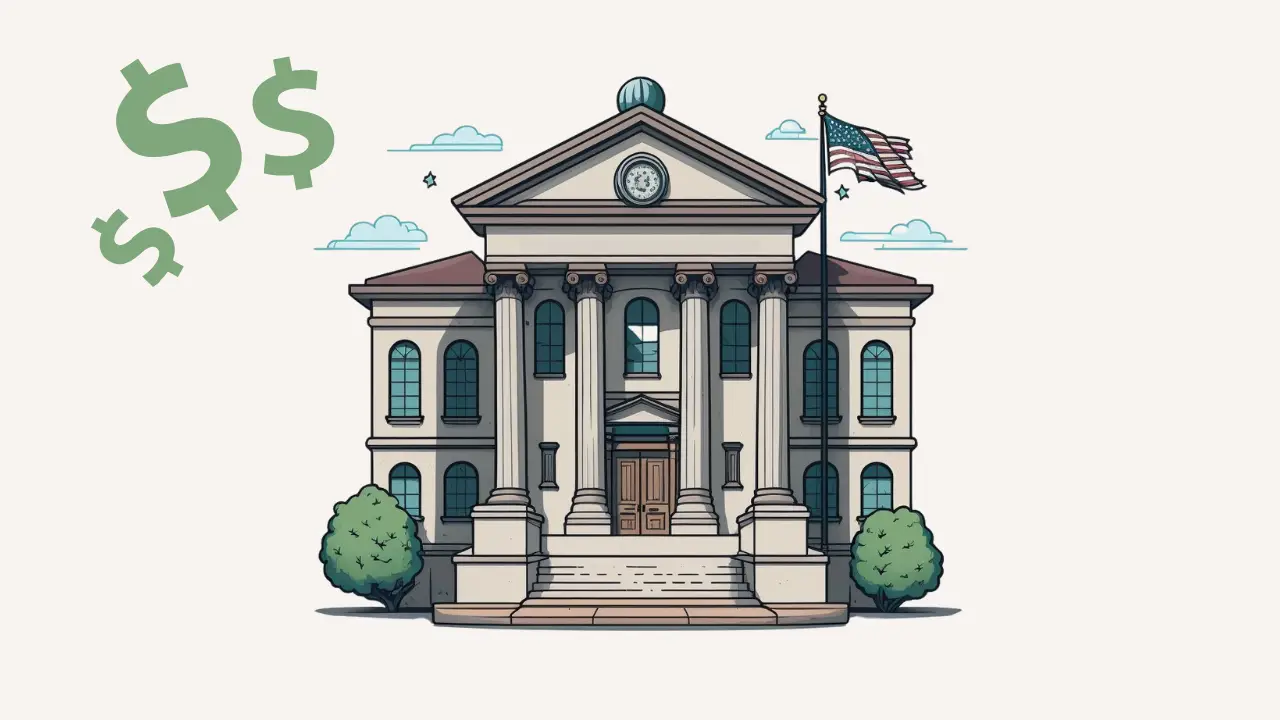Quick Summary:
United States prosecutors can be either government employees or contracted workers. The level of government they work for, whether it be federal, state, or local, can impact their pay. Typically, prosecutors in urban areas earn more than those in rural areas. However, the type of cases they handle, such as criminal or civil, can also affect their pay. Bonuses and incentives, such as promotions or extra pay for high-profile cases, may also be offered.
As you continue reading we’ll go on to answer common questions about this topic using stories, examples, and laws.
Are Prosecutors Government Employees or Contracted Workers?
In the United States, the employment status of prosecutors varies depending on the level of government they work for and the specific jurisdiction.
At the federal level, prosecutors are employees of the U.S. Department of Justice and are considered government employees.
At the state level, prosecutors may be employees of the state government or they may be contracted workers. In some states, prosecutors work for local district attorneys’ offices, which are government entities, while in others they work for private law firms under contract to the government.
At the local level, some prosecutors are employees of local governments, while others are contracted workers. The specific arrangement can depend on factors such as the size of the jurisdiction, the resources available, and local laws and regulations.
Federal, State, and Local Pay Examples
The pay for prosecutors can vary greatly depending on the level of government they work for.

Let’s take a closer look:
At the federal level, prosecutors are employees of the U.S. Department of Justice and are considered government employees. The pay for federal prosecutors is set by the government and is generally higher than that of state and local prosecutors, reflecting the increased responsibilities and caseloads they handle. Federal prosecutors also receive benefits such as health insurance and retirement plans, which can add significantly to their overall compensation.
At the state level, the pay for prosecutors can vary depending on whether they are employees of the state government or contracted workers. For example, in California, prosecutors working for the state Attorney General’s office are government employees and are compensated according to a government-set salary schedule. On the other hand, in some states, such as Texas, prosecutors may work for private law firms under contract to the government. These contracted prosecutors are paid by the firm, which may offer a different compensation package than the state government.
At the local level, the pay for prosecutors can also vary depending on whether they are employees of the local government or contracted workers. For example, in a large city like New York, prosecutors working for the district attorney’s office may be government employees with a set salary and benefits package. In a smaller jurisdiction, however, the district attorney’s office may not have the resources to hire full-time prosecutors and instead may contract with private law firms to provide prosecution services. In these cases, the pay for prosecutors will depend on the compensation package the private law firm offers.
Rural vs Urban Area Pay Differences
Yes, there can be differences in pay between prosecutors who work in urban areas versus those in rural areas. In general, prosecutors working in urban areas, particularly large cities, tend to earn more than those working in rural areas. This can be due to several factors, such as the cost of living in urban areas being higher, and the higher caseloads and complexity of cases handled by prosecutors in urban areas. The pay differential can also reflect the competition for legal talent in urban areas, where many private law firms and other organizations are also seeking to hire qualified attorneys.
Let’s take a closer look at some real-life examples:
Example 1: An urban prosecutor in New York City who works for the district attorney’s office may earn a starting salary of $60,000 per year, with the potential to earn more through bonuses and promotions. This prosecutor is handling a large caseload in one of the busiest and most complex legal jurisdictions in the country, and their compensation reflects the high level of responsibility and skill required for the job.
Example 2: In contrast, a rural prosecutor in a small town in Montana may earn a starting salary of $45,000 per year. This prosecutor may handle a smaller caseload and have fewer resources available, but they are still responsible for ensuring that justice is served in their community.
Example 3: A state prosecutor in Texas who is contracted to work for the government may earn a higher salary if they are working in Houston, a large urban area, compared to a rural area like Abilene. This is due to the higher cost of living in Houston and the greater demand for legal services in the area. The contracted prosecutor in Houston may earn $100,000 per year, while the contracted prosecutor in Abilene may earn $75,000 per year.
These examples show that there can be significant differences in pay between prosecutors who work in urban areas versus those in rural areas.
Pay Differences Between Criminal and Civil Cases
The pay for prosecutors typically does not vary based on the type of cases they handle, such as criminal or civil cases. Prosecutors are typically paid a fixed salary that is determined by factors such as their level of government (federal, state, or local), their years of experience, and their geographic location.
However, some prosecutors may receive bonuses or other financial incentives for handling high-profile or complex cases, such as white-collar crime or terrorism cases. Additionally, some prosecutors may receive performance-based bonuses or merit raises based on their performance and the outcomes of their cases.
Pay Differences Between Public Defenders, Private attorneys, and Prosecutors
The pay for prosecutors can vary depending on a number of factors, such as the level of government they work for, the specific jurisdiction they work in, and the type of cases they handle. In general, the pay for prosecutors is comparable to that of other legal professionals, such as public defenders and private attorneys. However, there can be significant variability in pay based on factors such as experience, education, and location.
Public defenders, who are appointed to represent individuals who cannot afford to hire a private attorney, may earn less on average than prosecutors or private attorneys. This is partly due to the fact that public defender salaries are often set by the government and may be lower than salaries for other legal professionals.
Private attorneys, hired by clients to represent their interests in legal matters, may earn higher salaries on average than prosecutors or public defenders. This is due in part to the fact that private attorneys often work for larger law firms and may handle more complex or high-profile cases, such as civil litigation or white-collar crime.
Potential Incentives and Bonuses
Yes, there can be bonuses or incentives offered to prosecutors, such as promotions or extra pay for high-profile cases.
The specific bonuses or incentives offered to prosecutors can vary depending on the level of government they work for and the specific jurisdiction they work in.
For example, in some jurisdictions, prosecutors may receive bonuses or merit pay for handling high-profile or complex cases, such as white-collar crime or civil litigation. Additionally, some prosecutors may receive bonuses or promotions based on their performance, such as their conviction rate or the number of cases they handle.
However, it’s important to keep in mind that not all jurisdictions offer bonuses or incentives to prosecutors, and the specific bonuses or incentives offered can vary greatly. Additionally, the eligibility criteria and amounts of bonuses or incentives may also vary, and may be based on factors such as experience, education, and performance.
Budgets and Job Effectiveness
The budget for prosecutors’ salaries and resources can have a significant impact on their ability to do their job effectively.

If the budget is insufficient, prosecutors may not have access to the resources and personnel they need to carry out their duties effectively, such as support staff, expert witnesses, and technology
For example, if prosecutors are underfunded, they may not be able to hire enough support staff, such as paralegals or investigators, to help them gather and organize evidence, prepare cases, and negotiate plea bargains. This can result in overworked prosecutors who are unable to provide adequate attention to each case, which can lead to lower conviction rates and a higher likelihood of wrongful convictions.
Additionally, insufficient funding for prosecutors can impact their ability to use technology and other resources to build and present their cases. For example, if prosecutors do not have access to the latest technology and databases, they may not be able to obtain and analyze relevant evidence, such as DNA samples or digital records. This can make it more difficult for prosecutors to build strong cases and secure convictions.
Furthermore, insufficient funding for prosecutors can also impact their ability to attract and retain experienced and skilled legal professionals. Prosecutors may not be able to offer competitive salaries and benefits, which can make it difficult to attract and retain the best legal talent.
Potential Initiatives and Efforts to Improve Compensation and Resources
There are initiatives and efforts to improve the compensation and resources available to prosecutors. These initiatives are aimed at addressing the challenges faced by prosecutors and ensuring that they have the support and resources they need to carry out their duties effectively.
For example, some organizations, such as the National District Attorneys Association (NDAA), have launched initiatives to raise awareness about the challenges faced by prosecutors and to advocate for increased funding and support. The NDAA has advocated for increased salaries and benefits for prosecutors, as well as greater access to technology, training, and other resources.
Additionally, some states have passed legislation to improve the compensation and resources available to prosecutors. For example, some states have established programs to provide financial incentives and support for prosecutors, such as loan repayment programs or bonuses for handling high-profile or complex cases.
Overall Effect On the Criminal Justice System
The pay and compensation for prosecutors can have a significant impact on the overall criminal justice system. Here are a few ways in which this can occur:
- Attracting and retaining experienced and skilled legal professionals: If prosecutors are not paid a competitive salary and benefits, they may have difficulty attracting and retaining experienced and skilled legal professionals. This can result in a shortage of qualified prosecutors and can make it more difficult to secure convictions in criminal cases.
- Case backlog: If prosecutors are overworked and underpaid, they may not be able to devote sufficient time and attention to each case, which can result in a backlog of cases and longer wait times for justice.
- Quality of work: If prosecutors are not provided with sufficient resources and support, they may not be able to carry out their duties effectively, which can result in lower conviction rates, wrongful convictions, and a breakdown of trust in the criminal justice system.
- Access to justice: If prosecutors are not adequately compensated, they may not be able to afford to work in certain areas, such as rural communities, which can result in unequal access to justice for people in those areas.
- Plea bargaining: If prosecutors are not paid a competitive salary and benefits, they may be more likely to engage in plea bargaining, which can result in a compromise of justice, as defendants may be more likely to plead guilty to reduced charges in order to avoid the risks and costs of a trial.
